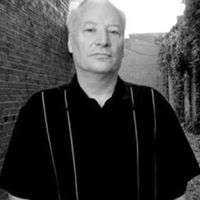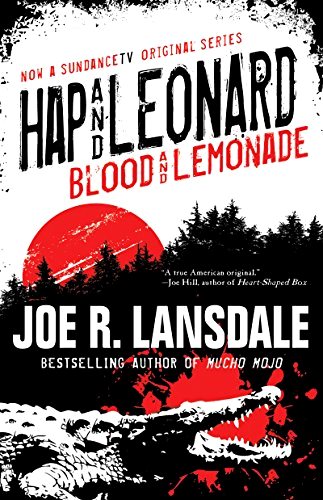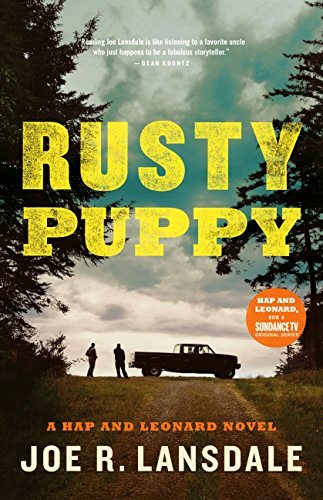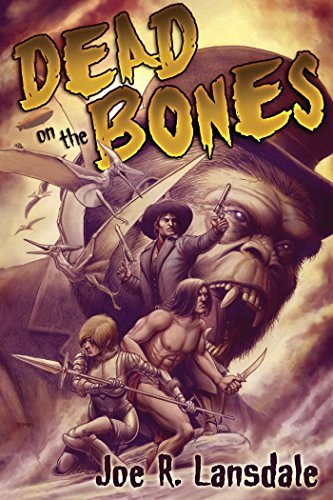

A two-part series!
Joe R. Lansdale's shares his personal experiences.
This month is Part One: Writing Tips
IN THE "SPECIAL PAGE" ARCHIVES:
Brent Monahan
Owen King
Dacre Stoker
Piers Anthony
Simon Clark
Lisa Morton
John C. Farris
Ramsey Campbell
JOE R. LANSDALE OFFERS TIPS ON WRITING
A very nice reader wrote today talking about time to write. I understand the problems. I have plenty of time now, but it hasn't always been that way. I worked a variety of jobs, sometimes more than one, doing part time work when available. I have been a house dad, raising two kids while my wife worked and I tried to write around naps and diaper changes.
I decided people waste more time than they need to. It's amazing what you can get done in fifteen minute spurts if you have to. I wrote several novels and many short stories that way when the kids were little. Now I write three hours a day, five to seven days a week. I take off now and then, but I'm pretty consistent that way. It adds up. We waste more time than we use.
A writing tip. You actually have to write.
Don't put off until tomorrow what you can do today. Sometimes taking a day off is doing something, as we all need time off, but sometimes just taking time is wasting time. You want to write, do it. Life is short. The absoluteness of that is what keeps me focused. Mortality is a certainty, and therefore your best friend. It makes you realize that later may never come. Do it.
Another writing tip. It's probably best if you enjoy it. If you don't, why bother? It should be pleasurable. It can be hard, but if it's such a job, take up knitting, though watch your finger tips.
All writing advice comes from personal experience. I offer it based on that. My truth may not be your truth, as Bruce Lee used to say. I merely state what works for me and my method of attack as a writer. It's meant as advice, not gospel. If it helps, good. If not, ignore it. With that said, sit down and write. If that's what you want to do, doing it gets it done and it makes you feel like a hero. It's a nice feeling.
One way to become a better writer, or so I hope, is to experiment. Write lean and mean and cut out all the excess, and then turn around the next time and be descriptive and atmospheric. I don't mean over do it or underdo it—though it's easier to overdo than underdo, I think—but play with different approaches. It helps you find your voice, what works for you, what doesn't, and sometimes what works in one story is not applicable to another.
Sometimes the things that bother you, social injustice, or just traffic jams, are what lead to engaging fiction, because no matter how simple it is, you're in the mix when you write it. Some of my best moments in fiction, or so I think, were when I wrote something into the story that I felt needed addressing, or that was heavily on my mind. You can end up preaching your obsession or worries if you're not careful, but fuel from your own interests, even small events from your own life, can add a feeling of verisimilitude to the work.
Going through a tough period on my novel, so I tell myself, well, I have to move on, and I can revise something already written, tighten it, so I overlook the last three pages, like I do every day, see ways to make it better—I revise as I go and revise the day before work the next day—and sure enough, I've found stuff, and then…
Well, new words were added and new pages were added, and all very early and very quickly, and it feels good. But had I let it get me down. Had I tried to fight my way through instead of just showing up, tinkering with yesterday's work, I wouldn't have found those pages.
Show up. Revise or write, and most of the time one leads to the other. I love revising as I go so the pages don't mount up, and then when I re-read it I'm so disappointed the work, revisions, seems insurmountable.
I learned long ago you don't attack it so much as you embrace it. Funny how your subconscious wants to give you what you need, but you have to let it. The doors to the "back mind" are best opened gently, otherwise they freeze shut. Or so it is in my case.
About Joe R. Lansdale

Joe R. Lansdale is the multi-award winning author of thirty novels and over two hundred short stories, articles and essays. He has written screenplays, teleplays, comic book scripts, and occasionally teaches creative writing and screenplay writing at Stephen F. Austin State University. He has received The Edgar Award, The Grinzani Prize for Literature, seven Bram Stoker Awards, and many others.
His stories Bubba Ho-Tep, Incident On and Off a Mountain Road, and Cold in July were all made into films. He is the founder of the martial arts system Shen Chuan, and has been in the International Martial Arts Hall of Fame four times. He lives in East Texas with his wife, Karen.
Learn about the Hap and Leonard TV series on the Sundance Channel HERE
Find out about Season Two of Hap and Leonard HERE
Visit Joe R. Lansdale HERE
See all of Joe R. Lansdale's books HERE


